- Home
- Neal Shusterman
Duckling Ugly
Duckling Ugly Read online
I am not one of the Beautiful People.
Some people are born with everything—looks, personality, brains. Any combination of two can usually get you by. You might not be much to look at, but if you’re a fun person and are smart, you’ll be fine. If you’re beautiful and personable, you could have oatmeal between your ears and no one would care much. But these natural laws that govern the social universe all fall apart when your looks are like a black hole. That’s me: a freakish blip in time and space—a singularity of ugliness. An ugularity—and no matter how smart I am, no matter how friendly or funny, it doesn’t matter. All that’s good about me gets sucked in and crushed into nothing when the world looks at me.
I could have accepted my fate, doomed to be an ugularity for my entire life, but then one day I was given the chance to trade in this face for all time. Who wouldn’t choose that if they could? No matter how unspeakable the consequences…
OTHER SPEAK BOOKS
Are You in the House Alone? Richard Peck
Dark Fusion: Dread Locks Neal Shusterman
Dark Fusion: Red Rider’s Hood Neal Shusterman
Dreamland Sarah Dessen
Inventing Elliot Graham Gardner
The Outsiders S. E. Hinton
Postcards from No Man’s Land Aidan Chambers
Prep Jake Coburn
The Shadow Club Neal Shusterman
The Shadow Club Rising Neal Shusterman
Stormbreaker Anthony Horowitz
That Was Then, This Is Now S. E. Hinton
The Unseen part 1: It Begins Richie Tankersley Cusick
The Unseen part 2: Rest in Peace Richie Tankersley Cusick
SPEAK
Published by the Penguin Group
Penguin Group (USA) LLC
375 Hudson Street
New York, New York 10014
USA * Canada * UK * Ireland * Australia
New Zealand * India * South Africa * China
penguin.com
A Penguin Random House Company
First published in the United States of America by Dutton Children’s Books, divisions of Penguin Young Readers Group, 2006
Published by Speak, an imprint of Penguin Group (USA) LLC, 2007
Copyright © 2006 by Neal Shusterman
Penguin supports copyright. Copyright fuels creativity, encourages diverse voices, promotes free speech, and creates a vibrant culture. Thank you for buying an authorized edition of this book and for complying with copyright laws by not reproducing, scanning, or distributing any part of it in any form without permission. You are supporting writers and allowing Penguin to continue to publish books for every reader.
THE LIBRARY OF CONGRESS HAS CATALOGED THE DUTTON EDITION AS FOLLOWS:
Shusterman, Neal.
Duckling ugly / Neal Shusterman.
p. cm.
Summary: When sixteen-year-old Cara, a girl ugly enough to break mirrors, is drawn to a place where everyone can be beautiful, her deepest desire is to return home to say goodbye—and get revenge.
[1. Ugliness—Fiction. 2. Beauty, Personal—Fiction. 3. Revenge—Fiction. 4. Supernatural—Fiction.] I. Title.
PZ7.S55987Du2006 [Fic]—dc22 2005010661
ebook ISBN 978-1-101-66050-8
The publisher does not have any control over and does not assume any responsibility for author or third-party Web sites or their content.
Table of Contents
Part One: “Ugularity”
1. To The Bone
2. Master-Means
3. The Sweet and the Rancid
4. The Mercy Seat
5. Question and Answer
6. Are We There Yet?
7. Breaking a Sweat
8. Into Ugly
9. B-e-t-r-a-y-a-l-s
10. Tempest and a Teapot
11. Northwest
Part Two: “Eternessence”
12. A Feast of Flowers
13. It’s a Beautiful Life
14. The Seven Mysteries
15. The Cauldron of Life
16. Unveiling
17. Postmortality
Part Three: “Cygnus Fatalis”
18. Return to the Flock
19. The New Girl
20. Uglifications
21. Consumption
22. Gauntlet of Grunge
23. The Ugly Places
Part One
“Ugularity”
I am not one of the beautiful people.
Some people are born with everything—looks, personality, brains. Any combination of two can usually get you by. You might not be much to look at, but if you’re a fun person and are smart, you’ll be fine. If you’re beautiful and personable, you could have oatmeal between your ears and no one would care much. But these natural laws that govern the social universe all fall apart when your looks are like a black hole. That’s me: a freakish blip in time and space—a singularity of ugliness. An ugularity—and no matter how smart I am, no matter how friendly or funny, it doesn’t matter. All that’s good about me gets sucked in and crushed into nothing when the world looks at me.
This is what the world sees when it dares to look:
A pair of sewer-shade eyes two sizes too big for my face; a weak chin with a spidery mole. Hair like brown weed-whacked crabgrass, and a flat chest over shapeless hips. It’s worse when I smile, because my brother got all the good teeth. Braces were always out of the question. As I once overheard my dentist say to his assistant, “Braces on that girl would be like lipstick on a horse.”
The word is ugly. Oh, there are other words for it. Words like plain, you know? Like vanilla. But if I were ice cream, I’m sure I’d be broccoli- or cabbage-flavored.
I could have accepted my fate, doomed to be an ugularity for my entire life, but then one day I was given the chance to trade in this face for all time. Who wouldn’t choose that if they could? No matter how unspeakable the consequences….
1
To The Bone
I will always remember the lights, stark and hot, shining on me from every angle. They exposed my face for the whole world to see. Being onstage in front of hundreds of people should have been a high point of my life, but those lights…I felt naked beneath them. My pores had opened—I could feel sweat running down my face, coursing around zits and moles like boulders in a river, then pouring down my neck, to soak the collar of my blouse. I knew even before we began that things were going to go wrong.
“Contestant number thirteen,” the head judge said, his voice booming into the microphone. “Cara DeFido.”
I stood up. There were hundreds of people in the audience. I couldn’t see them, but I did hear whispers. I tried to make myself believe they weren’t whispering about me.
“Spell the word unprepossessing.”
That’s an easy one, I thought. There was a little tittering from certain members of the audience when he said the word, but I didn’t let it get to me.
“Unprepossessing.” I said. “U-N-P-R-E-P-O-S-S-E-S-S-I-N-G. Unprepossessing.”
“That’s correct.”
There was some halfhearted applause as I sat back down.
Everyone’s good at something. I can spell. I guess it’s just an inborn ability—something to do with the way my brain is wired. It’s the kind of skill that goes unnoticed except at spelling bees. Kids can win thousands of dollars at the national level. “There’s a market for every skill,” my dad says, “even the weird ones.” So once a year I get to go up onstage for the county spelling bee, and I always win it. I never go on to the state or national spelling bees, though. I could, but I don’t. Those bigger contests are televised; I got my reasons for not getting in front of cameras.
As I sat there and waited for my next turn, the word I had just spelled stuck in my throat
like a pill, just dissolving there, tasting bitter.
Unprepossessing.
It was another one of those nice words for “ugly.” Even nicer than plain. It was just a coincidence that the judge’s computer came up with that word for me to spell, but still it bothered me. Momma would have called it ironic. The Almighty showing He’s got Himself a sense of humor. I’m sure that’s what she was thinking out there in the audience.
Well, she’s not me. The contests she went out for when she was my age were beauty contests, not spelling bees. She was possessing, prepossessing—there was no “un” about it.
“Contestant thirteen,” the judge’s voice boomed.
In the previous round, there had been five more eliminations. Only six of us remained. I stood up and felt the searing spotlight on me again.
The judge looked at the word that had been thrown up on his computer screen, and he hesitated. He glanced at the judge next to him, who only shrugged. He took a deep breath and turned to me.
“Please spell abomination.”
Some gasps of surprise from the audience. A few snickers.
The heat I felt in my ears, then cheeks had nothing to do with the lights. I knew I was going blotchy red. I tried to tell myself it was just coincidence again, but deep down I knew it wasn’t. This word was too easy. The other kids were getting words like cairngorm and pneumonectomy. Whether this was the Almighty having a major laugh or something other, I couldn’t figure out yet.
“Abomination,” I said. “A-B-O-M-I-N-A-T-I-O-N. Abomination.”
“Correct.”
I sat back down and looked at the crack-nail toes sticking through the tips of my sandals.
There’s that old joke: “Beauty is only skin deep, but ugly goes right to the bone.” But they’re wrong—because with me it goes deeper than the bone. It goes right to the marrow. I once overheard our pastor say to one of the other parishioners that looking at me was enough to question your belief in God. Momma overheard it, too, so we left that church and found another.
Four more contestants were disqualified, one after another. It was down to me and some brainiac who kept nervously cracking his knuckles.
“Contestant thirteen,” came the booming voice.
I stood.
When the judge looked at the computer screen this time, he took his time. He called all the other judges over. They conferred, then sat down again, looking back and forth to one another. When the head judge got on the microphone, he didn’t offer me a word to spell. He offered me his apologies.
“I’m sorry, Miss DeFido…but the rules are very strict,” he said. “We have no choice but to give you the word that comes up on the screen. You understand?”
I nodded.
“There’s nothing we can do about it.”
I nodded.
He took a deep breath and said, “Please spell…grotesque.”
And this time there was unrestrained laughter in the audience; the chuckling, twittering voices of students, and parents, too. This was no accident. Somewhere out there, I knew, there was one kid, or two, or a whole gaggle of them who were secretly gloating over having somehow pulled this prank.
I knew what I had to do. Holding my head as high as I could manage, I spelled the word.
“Grotesque,” I said. “G-O…” I leaned closer to the microphone. “T-O…” I grabbed the microphone stand like a rock star. “H-E…” I looked out over all those people in the audience. “L-L. Grotesque.”
Silence from the judges. Silence from the audience.
Finally, the head judge leaned toward his microphone. “Uh…I’m sorry,” he said. “That is incorrect.”
Then, in the front row, a newspaper photographer stood up and brought his camera to his eye.
Go on, take my picture, I thought. Go on. I dare you.
And I smiled for him, as wide as I could, stretching my lips over my terrible teeth.
The lens shattered with such force the entire camera fell to pieces.
People nearby shielded their eyes from the flying shrapnel, and the photographer, his hands and face bloody, stood for a moment staring in shock, then raced down the aisle in pain.
“Cheese,” I said.
Then I took off the number 13 sticking to my shirt and left.
My mother found me walking by the side of the road ten minutes later. She pulled up in her classic pink Cadillac—the kind they got sticking out of the roof of the Hard Rock Cafe. It has wings like the Batmobile and funky bullet-shaped taillights. Everyone knows when Momma drives down the street. When she saw me, she slowed down, matching my pace.
“Cara DeFido, you get yourself into this car.”
“Give me one good reason.”
“Because it’s a twenty-mile walk back to Flock’s Rest.”
“So I’ll hitchhike,” I told her.
“And who is it you think’s gonna pick you up?”
“Yeah,” said my brother from the backseat. “One look at her and they’ll break the land-speed record to get away.”
Momma turned around and tried to whack him, but her headrest got in the way. “You just shut that piehole, Vance,” Momma said.
“Hey, I’m just trying to help!”
The way Momma saw it, she was the only one allowed to tell me how ugly I was, and she had no qualms about doing it. “Honey,” she used to say when I was little, “you’re as ugly as a duckling coming out of its shell.” And then she would kiss all those ugly parts of my face.
It might sound horrible, but you gotta understand, she said it out of love. Okay, maybe a little out of bitterness, too, but mostly out of love. See, my momma, she’s smart enough to know there’s some things the world doesn’t forgive. The world can forgive you for being stupid. It can forgive you for being blind, for being deaf; it can even forgive you for being bad. This world doesn’t forgive ugliness, though—and if Momma had pretended that I wasn’t, it would have been a cruelty beyond measure, because how could I ever face the world without being prepared for the nastiness it would eventually kick back at me?
I knew she couldn’t be too mad at me for what I did at the spelling bee, because she had raised me not to take any guff for being ugly. Some kids need tough love—well, Momma raised me with ugly love.
Even now I could see the love behind her stern face. I knew she wanted to jump out of that car, hug me, and make all the meanness in the world go away. But just as she wouldn’t give me that hug, I wouldn’t ask for it. We both understood that sympathy was one step above pity, and we would have none of that.
“I don’t like what happened in there any more than you do,” Momma said, “but if you think I’m gonna let you walk home, you got something else coming!”
“I swear, Momma, if you make me get in that car, I will look into your rearview mirror, and your side mirrors, too!”
“So what?” said Momma. “I’ll just buy new ones, and take it out of your allowance.”
“What allowance?”
By now Momma’s patience had worn as thin as her mascara. “Cara, I am not gonna say it again. Get in this car!”
I looked at the road before me. It was straight, the ground was flat, and in the distance, I could see the mountains. Our town was at the base of those mountains. It was getting late in the afternoon, but I didn’t care if it got dark. I could probably be home by midnight if I walked fast enough. Then I saw the billboard about a hundred yards ahead, featuring my father’s smiling face, before his hair went salt-and-pepper. It was one of the really old billboards back from the days when he had a dozen used-car lots around the county, instead of just one. DEFIDO MOTORS, the billboard said. WE TREAT YOU RIGHT-O AT DEFIDO. The sign was faded, but it didn’t stop his face from looking down on me. I wondered how many of these old billboards were on the road between here and home. I could bear a twenty-mile walk, but not the prospect of Dad glaring down at me ten times larger than life, over and over again.
“Did you call Dad?” I asked Mom.
“And tell him
what? That you spelled a four-letter word?”
“Technically,” said Vance, “it was one four-letter word, and a couple of two-letter words.”
“I had every right to do it!”
Mom didn’t answer right away. She just kept that stern expression, then said, “Maybe you did, but it doesn’t mean I have to like it.”
Then another car passed, heading back toward Flock’s Rest, and one of my classmates shouted out the window, “Hey, DeFido, wha’cha doing there? I don’t see no sign that says COYOTE CROSSING!”
There was laughter from the other kids in the car, and they peeled out.
Momma pursed her lips and ignored it, the way she always taught me to ignore it—but I think it hurt her more than it hurt me.
“If you walk, you’ll have nothing but your own thoughts for company,” she said. “And some evil company they’ll be. The sooner we get you home, the sooner you can get your thoughts on something else.”
“Ah, she’ll just go into her room and do some more of those stupid ink drawings,” said Vance. Momma gave him her best dirty look, and he wilted like a fern in a frost.
In the end, I got into the car. Not because of the long walk, not even because of having to face my dad’s billboards. It was that passing car that made me realize I couldn’t make the walk…because I knew everyone riding back to Flock’s Rest from the spelling bee would pass me, and I couldn’t bear the thought of every single driver having something to say.
2
Master-Means
I touched the tip of the wolf-hair brush to the surface of the ink and watched as the ink slowly wicked up into the brush, until it shone wet and dark.
At first I didn’t know what had drawn me to Chinese ink painting. I didn’t even know anyone Chinese. There was something about the simplicity of it, and the feel of a single bamboo brush carving up the white void. It just felt right. Then I learned that the art form began as a way to write the complicated symbols of the language. It all made sense to me then. Ink drawing was the Chinese version of spelling! I even went as far as to learn the seven basic strokes of Chinese writing and use only those strokes in the things I drew, so it all had a mysterious Zen look about it.

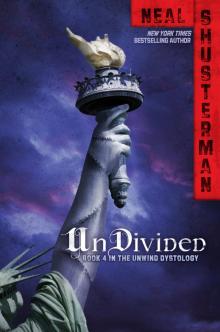 UnDivided
UnDivided UnBound
UnBound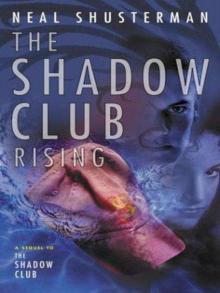 The Shadow Club Rising
The Shadow Club Rising Scorpion Shards
Scorpion Shards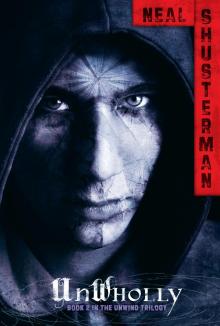 UnWholly
UnWholly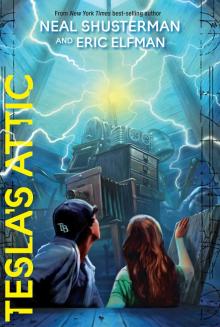 Tesla's Attic
Tesla's Attic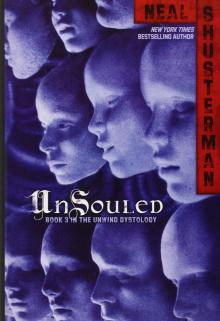 UnSouled
UnSouled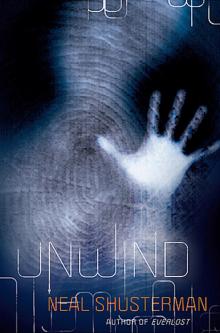 Unwind
Unwind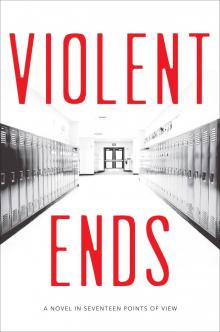 Violent Ends
Violent Ends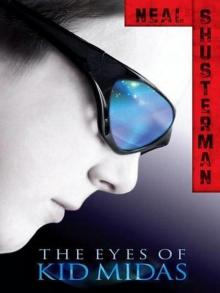 The Eyes of Kid Midas
The Eyes of Kid Midas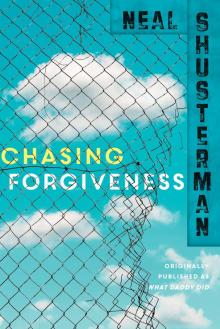 Chasing Forgiveness
Chasing Forgiveness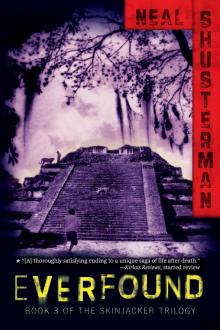 Everfound
Everfound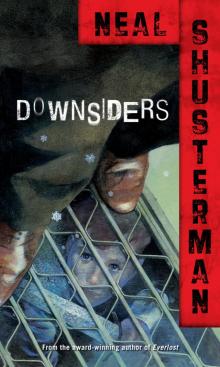 Downsiders
Downsiders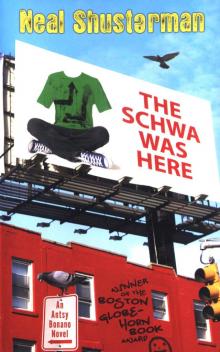 The Schwa Was Here
The Schwa Was Here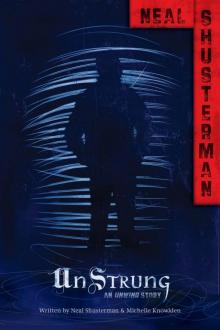 UnStrung
UnStrung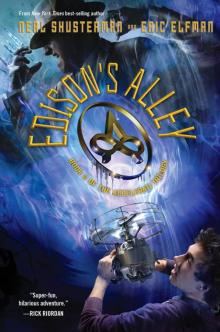 Edison's Alley
Edison's Alley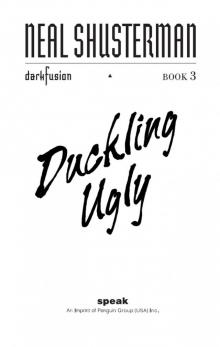 Duckling Ugly
Duckling Ugly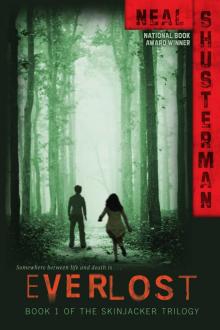 Everlost
Everlost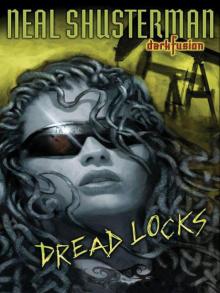 Dread Locks
Dread Locks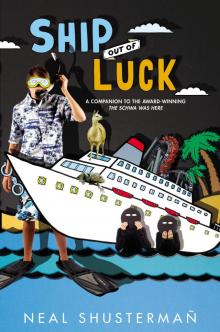 Antsy Floats
Antsy Floats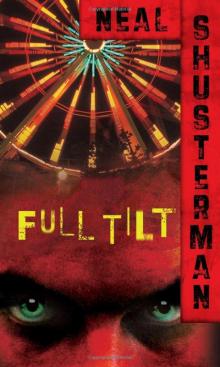 Full Tilt
Full Tilt Thunderhead
Thunderhead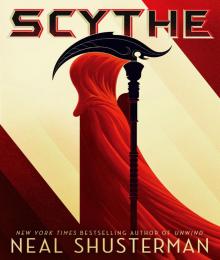 Scythe
Scythe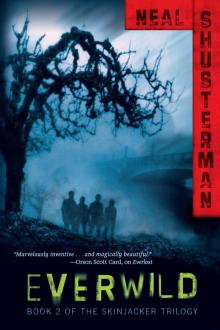 Everwild
Everwild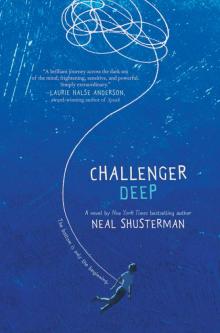 Challenger Deep
Challenger Deep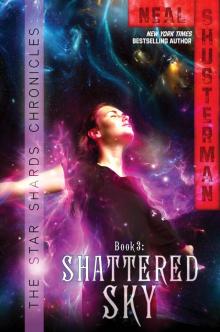 Shattered Sky
Shattered Sky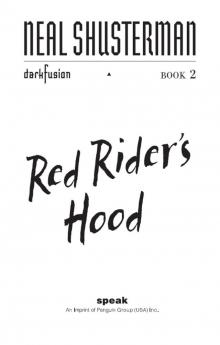 Red Rider's Hood
Red Rider's Hood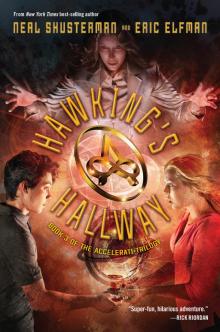 Hawking's Hallway
Hawking's Hallway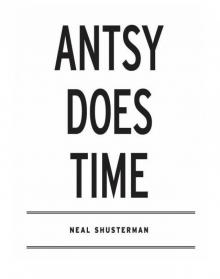 Antsy Does Time
Antsy Does Time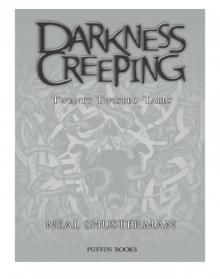 Darkness Creeping: Twenty Twisted Tales
Darkness Creeping: Twenty Twisted Tales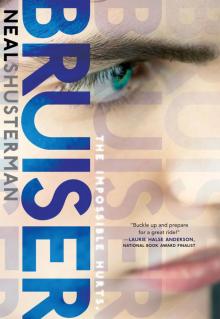 Bruiser
Bruiser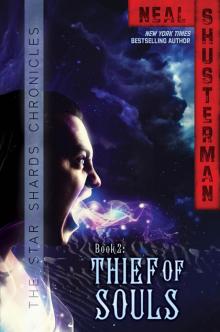 Thief of Souls
Thief of Souls The Toll
The Toll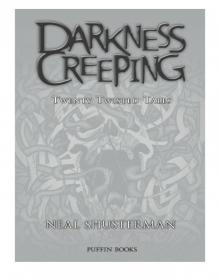 Darkness Creeping
Darkness Creeping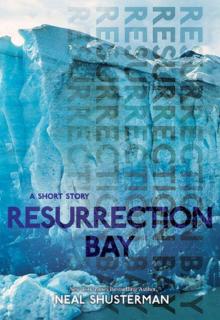 Resurrection Bay
Resurrection Bay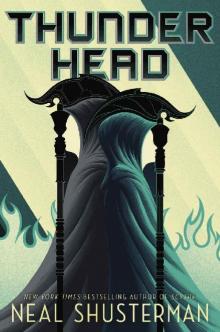 Thunderhead (Arc of a Scythe Book 2)
Thunderhead (Arc of a Scythe Book 2)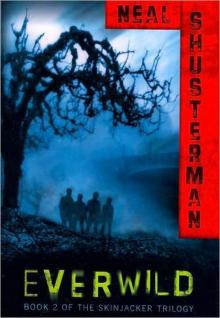 Everwild (The Skinjacker Trilogy)
Everwild (The Skinjacker Trilogy)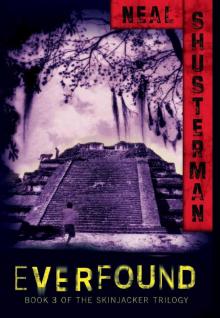 Everfound s-3
Everfound s-3 Edison’s Alley
Edison’s Alley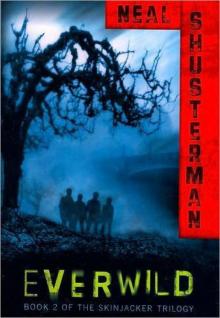 Everwild s-2
Everwild s-2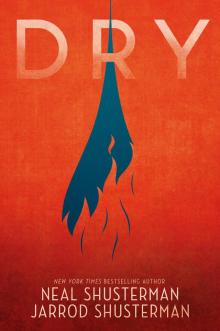 Dry
Dry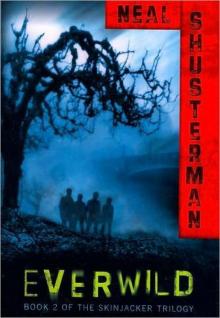 Skinjacker 02 Everwild
Skinjacker 02 Everwild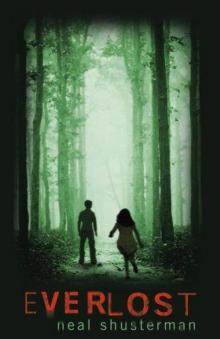 Everlost s-1
Everlost s-1